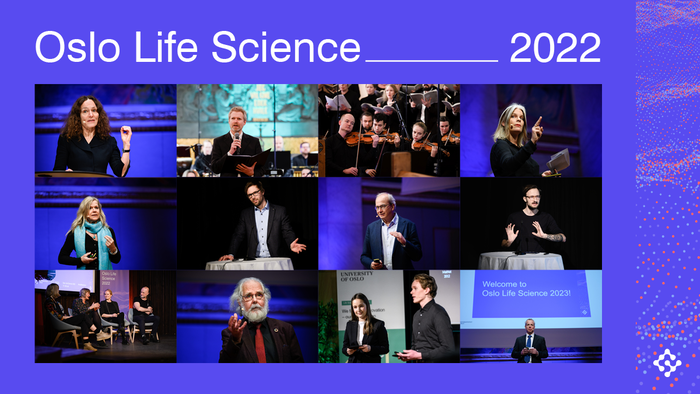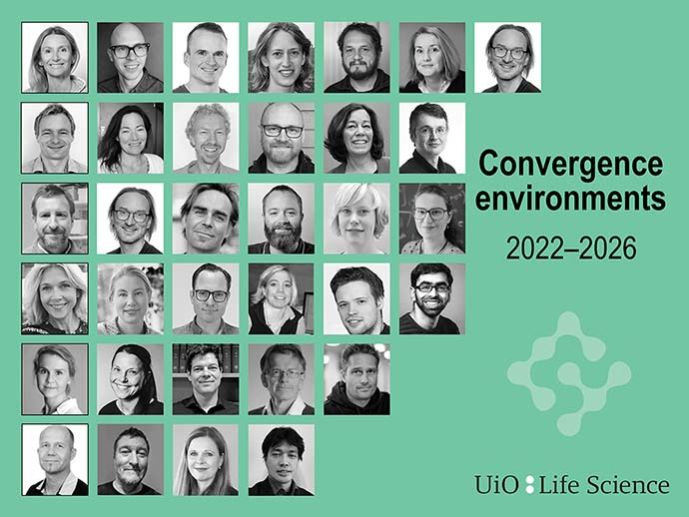Helene Sjursen at ARENA and Sascha Frühholz at the Department of Psychology receive prestigious funding to explore the global role of EU and voice technology in artificial intelligence.
News
Immediately after the Russian invasion, people were in shock to find themselves in the midst of a war. At the same time, many were full of fighting spirit. After over two years of war, a slowly spreading war weariness is permeating the population. An increasing number of people are becoming depressed.
Vegard Skirbekk at the Department of Psychology receives an Advanced Grant of 26 million kroner from the European Research Council (ERC).
Anders M. Dale is appointed as an honorary doctor at the University of Oslo for his outstanding scientific achievements - which have contributed to new insights into the function of the brain.
"Our product makes it easier to tailor IVF treatment to individual women," says Ana Lobato Pascual, who is starting a company with fellow students from the School of Health Innovation.
We offer the Erik Blytt stipend for master's students, consisting of NOK 6000,- per month. The application deadline was 31st October, 2022
A central aim of the Lifebrain consortium is to optimize the use of European brain imaging cohorts, by enabling their combined use in research, and to reveal consistency as well as heterogeneity of factors related to brain and cognition.
The Lifebrain findings provide support for some established associations, but also challenge some tenets of lifespan cognitive neuroscience.
UiO:Life Science established in 2021 a support scheme for interdisciplinary life science courses. Departments and faculties at the University of Oslo are eligible to apply. The scheme has an no deadline, applications can be submitted at any time.
The theory, known as the ‘great replacement,’ has gained currency on popular television programs and in the halls of Congress.
New research shows that oxytocin system dysfunction contributes to both mental disorders and cardiovascular and metabolic health. A researcher says that oxytocin has the potential to treat mental disorders and the associated risk of cardiovascular disease and metabolic disorders.
Professor Eivind Ystrøm at the Department of Psychology has been awarded a prestigious Consolidator Grant from the European Research Council to investigate why one fifth of Norwegian children do not complete secondary education, and need one fifth need treatment for a mental disorder before they reach adulthood.
Researchers from the University of Barcelona (UB) have found that some people feeling lonely over time may have declining verbal memory. The study is part of the Lifebrain consortium led by the University of Oslo.
The prospect of experiencing symptoms of cognitive or mental decline was a key motivation to undertake lifestyle changes, even more so than having been diagnosed with a brain disorder – an important finding from the second public report of the Global Brain Health Survey.
Five new teams have been admitted to UiO´s innovation programme SPARK Norway. They will develop their ideas within health-related life sciences for the benefit of patients and society.
Are you a PhD student, postdoc or Master’s student in life sciences and interested in career opportunities beyond academia? Sign up for Young Talents on 15 February!
In brain scans of almost 1500 people throughout Europe, researchers of the Lifebrain consortium found that people with “older-looking” brains had both lower birth weight and genes for smaller brains, compared with those with normal ageing brains.
Both these factors are present early in life, indicating that your “brain age” is mostly related to early life influences and not so much on events that happen later in life.
Medication use during pregnancy, healthy aging, cancer, organoid technology, fibrosing diseases and cognitive function throughout life. These are societal challenges that will be examined by new interdisciplinary life science research groups at the University of Oslo.
In a study of more than 50.000 participants, researchers from the Lifebrain consortium found that although more education and higher income tended to be associated with larger brain volumes and better cognitive scores, these associations varied considerably between groups studied.
People want clear, evidence-based information about exactly which lifestyle changes can improve their brain health, according to a new report from the Lifebrain consortium at the University of Oslo.





















